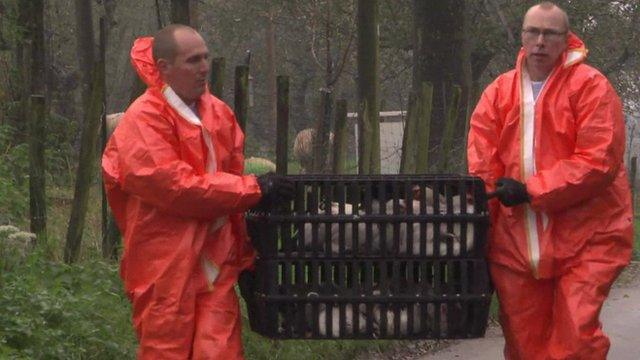Bird flu: 'Robust action' on Yorkshire duck farm case
- Published
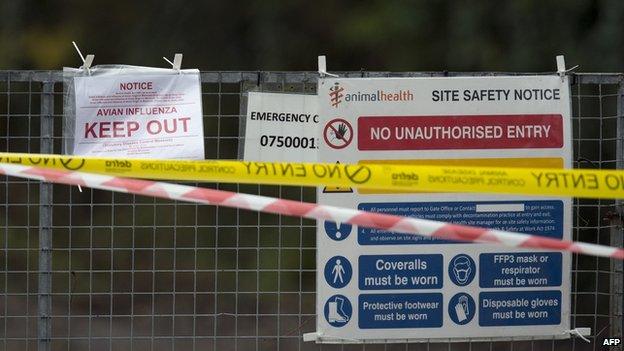
"Immediate and robust action" is being taken to stamp out bird flu following a confirmed case at a duck breeding farm in East Yorkshire, the environment secretary has told the Commons.
Tests are yet to establish the strain, but the H5N1 form, deadly to humans, has been ruled out, Liz Truss said.
About 6,000 birds will be culled from Tuesday as a precaution and a 6 mile (10km) exclusion zone is in place.
Ms Truss repeated reassurances that there was no risk to food safety.
The Department for Environment, Food and Rural Affairs (Defra) said the flu strain at the farm in the village of Nafferton had been identified as the H5 virus, but not the H5N1 strain. That strain has led to hundreds of deaths worldwide, although none have been in northern Europe.
European Commission officials say the outbreak is likely to be linked to migratory birds - possibly swans - heading south for winter, and cases in the Netherlands at the weekend and Germany earlier in the month.
The EC said the UK and the Netherlands were applying its directives to control the spread of the virus.
They also include the introduction of cleaning and disinfection areas, and a ban on the sale of live poultry, eggs, poultry meat and other poultry products from the restricted zones to other countries.
In her statement to MPs, Ms Truss said: "Importantly, the chief medical officer and Public Health England have confirmed the risk to public health is very low.
"It is important to note this disease is highly pathogenic for birds but the Foods Standards Agency has advised that avian flu does not pose a food safety risk."
She added: "We have seen a really good effort, I am clear we need to keep that up, to make sure we stamp out this disease."
Amid concern further cases could be spread by wild birds, Ms Truss said compensation would paid to farmers adversely affected by the outbreak.

Analysis
By Paul Murphy, environment and rural affairs correspondent, BBC News
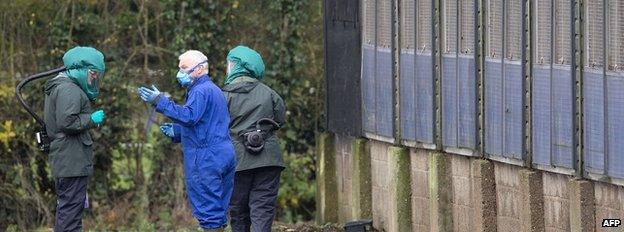
The sight of Defra officials, clad in protective clothing and planning the cull of 6,000 ducks is something no farmer wants to see.
But this community wants this virus stopped in its tracks here at the duck farm in Nafferton.
There are 2.5 million farmed birds in East Yorkshire alone, spread over 50 units. They include 500,000 ducks and more than one million hens. All of them are vulnerable to this highly contagious strain of Avian Flu.
The six mile exclusion zone around the infected farm was enforced from first light and could last for weeks. Within the zone the movement of all poultry is completely prohibited.
A biosecurity measure which in itself will already be having an impact on local businesses.
But perhaps what will worry farmers most is the suspected source of this outbreak. It is not believed to be the industry's supply chain but rather the droppings of wild birds, migrating in their thousands across Europe, with no regard for exclusion zones and completely beyond anyone's control.

A private vet reported a possible case of bird flu at the Nafferton farm on Friday morning and the disease was confirmed the following day.
Ms Truss said: "It is essential anyone keeping poultry practises good biosecurity, is vigilant for any signs of disease and seeks prompt advice from their vet."
The case is the first in the UK since 2008, when chickens on a farm in Banbury, Oxfordshire, tested positive for the virus.
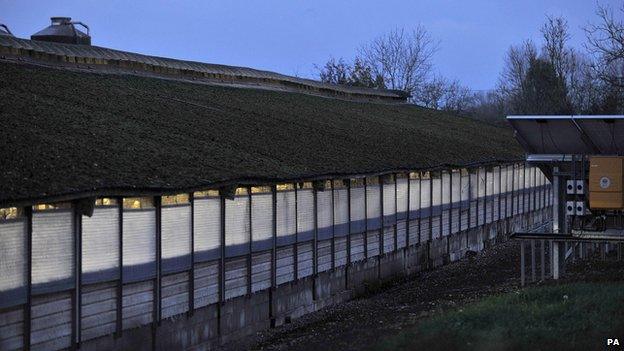
The cull is due to begin on Tuesday morning
On Sunday, an outbreak of a highly contagious strain of bird flu was discovered at a poultry farm in the Netherlands. The Dutch government has imposed a three-day nationwide ban on the transportation of poultry and eggs.
Officials say the strain identified in the Netherlands, H5N8, is very dangerous for bird life and could potentially spread to humans, although people can only be infected through very close contact with the affected birds.
The European Commission said the "information available indicates that the H5 virus in the UK is probably identical to the H5N8... virus found in the Netherlands and in Germany".
Environment Secretary Liz Truss: "Avian flu does not pose a food safety risk"
'Not complacent'
On Monday, specialists dressed in blue protective overalls and face masks could be seen on the Nafferton farm.
The Animal and Plant Health Agency, a Defra agency, said the culling of the livestock will begin on Tuesday morning and is expected to last all day.
In the Commons, shadow environment secretary Maria Eagle questioned whether officials should operate on a "precautionary principle" until it was clear what the source of the bird flu was.
"Would this not impact on measures ought to be taken to contain it," she said.
Ms Trust told MPs: "Whilst we are never complacent about such an important issue, we do have a strong track record of controlling and eliminating outbreaks of avian flu in the UK and we are working closely with operational partners, devolved administration colleagues and the industry to deal effectively with this outbreak."
Chris Dickinson, the National Farmers Union county adviser for Yorkshire, said farmers needed to maintain good hygiene measures and check their stock to help prevent a spread.
British Poultry Council chief executive Andrew Large reiterated the message from scientists that the risk to the general public in the UK from bird flu is negligible.
"Consumers should continue to support British poultry meat, assured that there is no risk in eating cooked poultry, and that is a message echoed by the Food Standards Agency and the World Health Organization," he said.
- Published17 November 2014
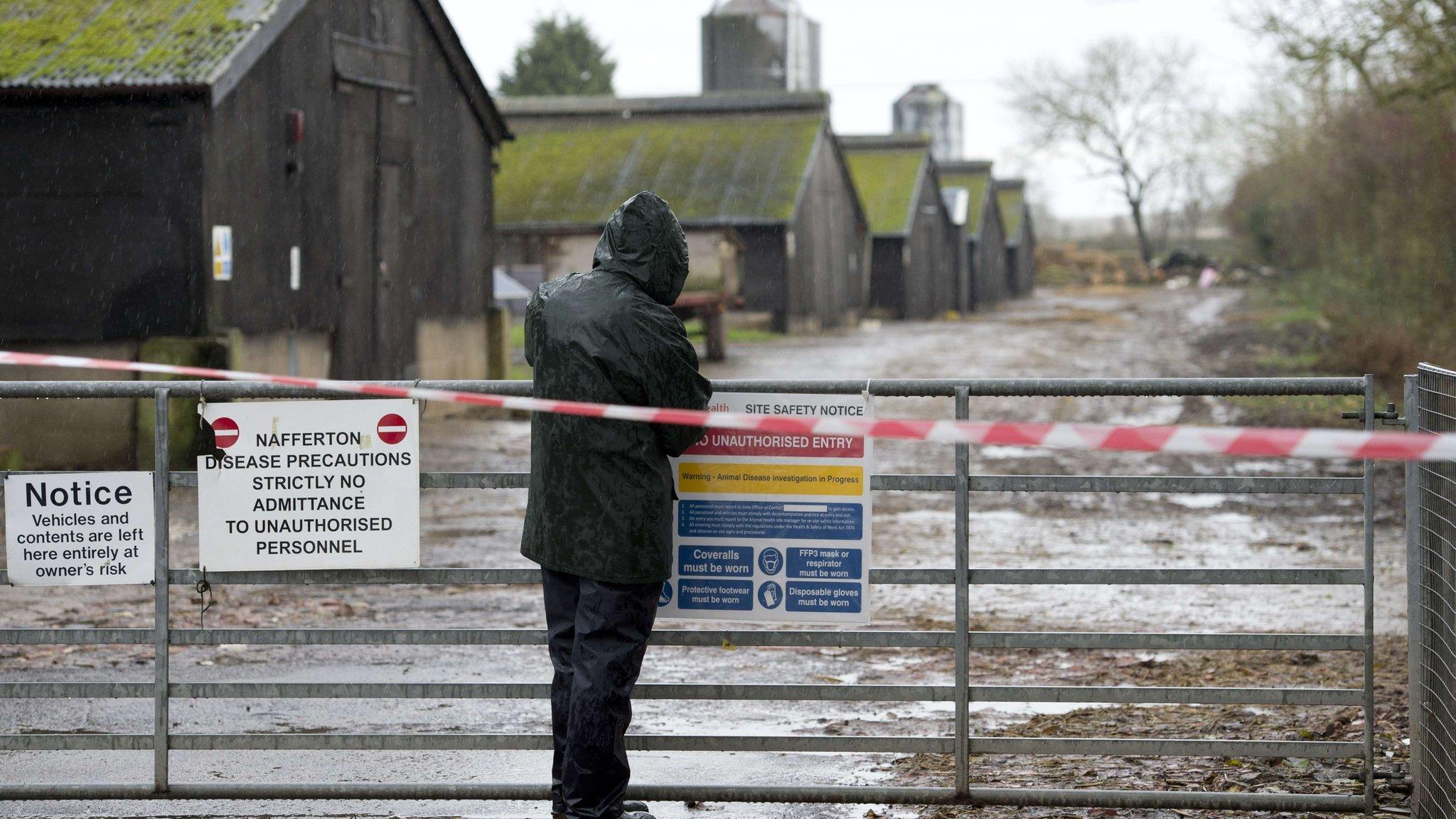
- Published18 November 2014

- Published17 November 2014
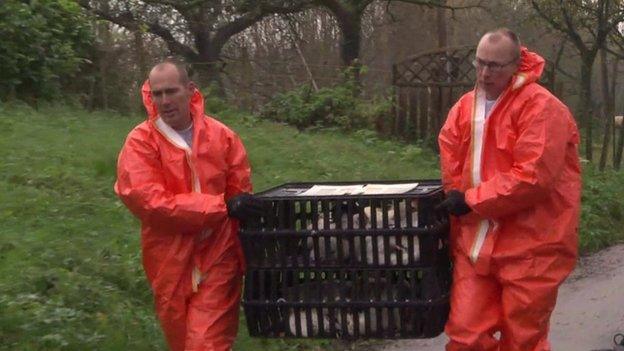
- Published1 May 2013
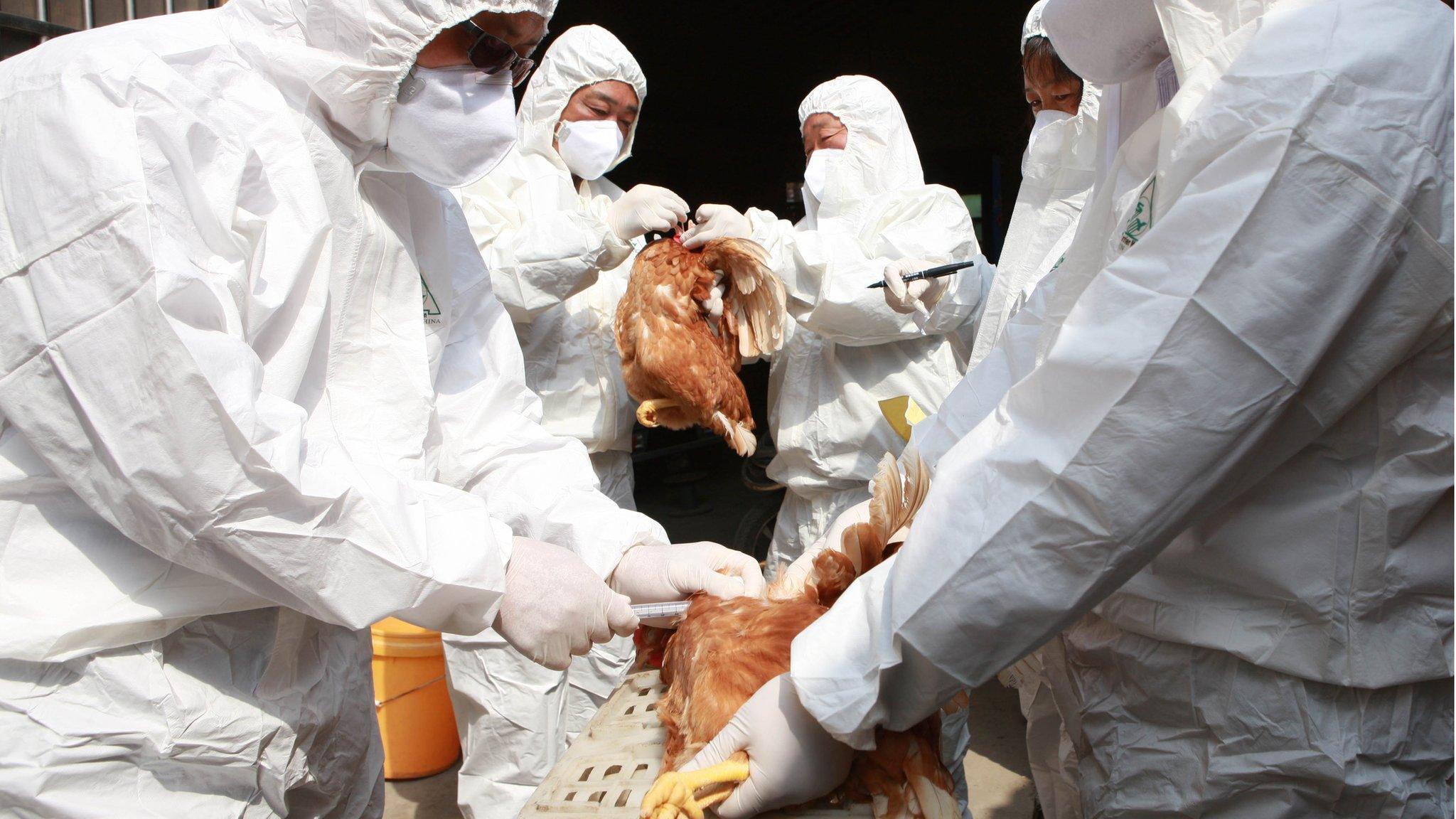
- Published17 November 2014
